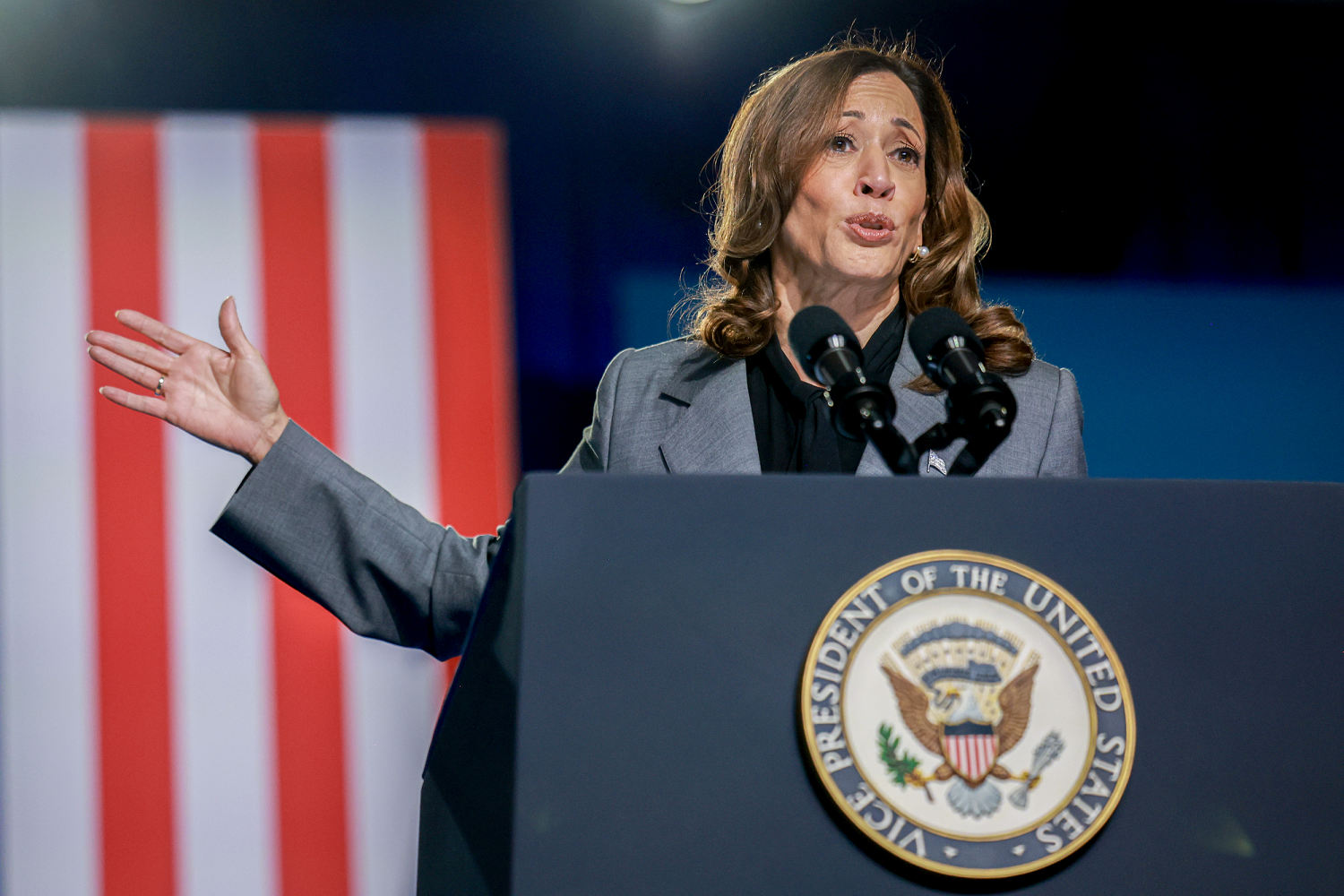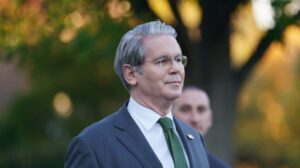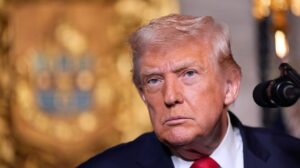Politics
Black women voters’ top issue shouldn’t surprise anyone

Over the past few weeks, BLN legal analyst Melissa Murray and I traveled across the country to explore what Black women from the cities to the suburbs are thinking about in the upcoming election. In every conversation, the economy came up as their top concern. They want to know the person they support has a plan to address their needs.
In this election, Vice President Kamala Harris is the only candidate who fits that bill.
On Wednesday, the vice president detailed her economic agenda with a speech and an interview with MSNBC’s Stephanie Ruhle in Pittsburgh. From a campaign perspective, she hit all the marks one would want from a candidate in appearances like these. She was personable. Though she rarely speaks publicly about caring for her mother after her cancer diagnosis, she went into details that anyone who has had to care for a loved one could identify with.
This level of accessibility is crucial and could make a difference among undecided voters.
Importantly, Harris also spoke in great detail about her plans, but one didn’t need to be an economist to follow the conversation. Her explanation of how her plan to provide $25,000 in down-payment assistance to first-time homeowners would serve as a path forward to build intergenerational wealth was reasonable. When she spoke of her plan to boost a tax deduction for small businesses to $50,000, she made the connection to how that helps startups get off the ground. This level of accessibility is crucial and could make a difference among undecided voters.
In Blue Bell, Pennsylvania, Melissa and I spoke with a young voter named Clarke who just finished her master’s degree. She told us that out of 20 classmates, just four were able to land jobs after graduation and that many young people are at a moment when they are being crushed by inflation. Voters like Clarke understand the stakes in this election and are searching for real solutions to ease their economic pain.
Blue Bell is an affluent suburb of Philadelphia that both presidential candidates have targeted. Democrats have made gains there, netting 40,000 more votes in 2020 than they did in 2016 — a big reason Joe Biden carried the state in the last election. This is a suburb where the margins will matter, and how Black voters and younger voters overall show up to the polls could determine not only the winner of the state, but possibly the entire election.
On the campaign trail, Harris has been building the framework to help voters like Clarke. Harris calls it her “opportunity economy.” Notably, she doesn’t just say the phrase; she explains what it means for people in their lives. Her plan is to increase financial security for all Americans, no matter their backgrounds. In her speech this week to the Economic Club of Pittsburgh, Harris focused on growing America’s workforce. She connected her vision to her own middle-class upbringingeffortlessly delivering her plans for practical goals that would push America into a brighter tomorrow.
While Harris laid out her economic policies, she also didn’t miss an opportunity to needle her opponent. During her BLN interview, Harris said former President Donald Trump is “just not very serious about how he thinks about some of these issues. And one must be serious and have a plan, and a real plan, that’s not just about some talking point ending in an exclamation at a political rally.”
The small-government conservatives where I grew up in Nebraska will tell you that isn’t likely to work.
Harris and Trump have very different visions of how to run the most powerful economy in the world. Frankly, when it comes to Trump’s economic vision, it isn’t hard to flush out. He is, as The New York Times’ Jim Tankersley puts it, using a “hammer and bullhorn” approach. He wants to force companies to lower prices, without a clear understanding of how the markets work, and then somehow tariff his way to economic prosperity. The small-government conservatives where I grew up in Nebraska will tell you that isn’t likely to work.
Trump’s economic pitch is so disconnected from reality that even Senate Minority Leader Mitch McConnell, R-Ky., blasted Trump’s tariff proposals as a price hike for American consumers.
Earlier this month, Trump was asked what he would do to tackle the high cost of child care. His response was an incoherent rant about tariffs on China — a nonsensical answer that didn’t list a single solution. He has shown to voters he doesn’t understand the realities of child care in America, one of the biggest costs for families. In contrast, Harris’ plan is clear and simple to understand: Expand the child tax credit.
And we all know Trump doesn’t have a plan to lower costs of health care. Instead, he claims to have a concept of a plan. Dii, a North Carolina voter Melissa and I spoke with in Washington, D.C., said a plan for affordable health care will be on her mind when she casts her ballot. Voters are paying attention.
I think voters tend to give Republicans the benefit of the doubt on the economy because for years they have just claimed to be better, although they were never good at backing it up with actual policy. This November, unspecified “concepts” just won’t cut it with Black women.
Harris and Trump aren’t the only candidates on the ballot this November. Eleven states will select new governors, control of the U.S. Senate is on the line, and every member of the U.S. House of Representatives is up for re-election. For candidates up and down the ballot, strong turnout from Black women could make the difference in victory or defeat.
Black women are often spoken of as the backbone of the Democratic Party. They are definitely consistent when it comes to showing up to vote, but their vote isn’t owned by one political party. It needs to be earned. And for Black women concerned about the economy, Harris has done a lot to earn it.
“Black Women in America: The Road to 2024” airs Sunday at 9 p.m. ET on BLN. It will be available to stream on Peacock the following day.

Symone D. Sanders-Townsend is an author and a co-host of “The Weekend,” which airs Saturdays and Sundays at 8 a.m. ET on BLN. She is a former deputy assistant to President Joe Biden and a former senior adviser to and chief spokesperson for Vice President Kamala Harris.
Politics
Rep. Salazar touts Venezuela’s Machado before her visit

The Florida Republican said Trump will be ‘highly pleased’ with the opposition leader and winner of the Nobel Peace Prize…
Read More
Politics
Rand Paul: Bombing Iran ‘is not the answer’

“I don’t think it’s the job of the American government to be involved with every freedom movement around the world,” the Kentucky senator said…
Read More
Politics
Former Rep. Mary Peltola jumps into Alaska Senate race
Former Rep. Mary Peltola entered the Alaska Senate race on Monday, giving Democrats a major candidate recruitment win and the chance to expand the 2026 Senate map as they look for a route to the majority.
The Alaska Democrat’s decision is a victory for Senate Minority Leader Chuck Schumer, who recruited Peltola to run against Sen. Dan Sullivan (R-Alaska). Peltola’s brand as a moderate problem-solver and the state’s ranked-choice voting system open the door for Democrats, but it’s still a steep climb in a state President Donald Trump won by 13 percentage points in 2024.
In her announcement video, Peltola pledged to focus on “fish, family and freedom,” while also calling for term limits and putting “Alaska first.”
“Systemic change is the only way to bring down grocery costs, save our fisheries, lower energy prices and build new housing Alaskans can afford,” Peltola said. “It’s about time Alaskans teach the rest of the country what Alaska First and, really, America First looks like.”
Peltola’s campaign creates another offensive opportunity in play for Democrats, who must flip four seats in order to retake the majority next fall. The odds are long, but Democrats have become increasingly bullish about their chances since their victories in last year’s elections. Peltola carved a moderate profile during her time in Congress, occasionally voting with Republicans on energy and immigration-related legislation.
Even so, Peltola’s decision to run Alaska presents tough sledding for any Democrat. Peltola’s 2022 wins came in large part because of a bitterly divided GOP field, and besides her victories that year, Democrats have won just one other federal race in Alaska in the last half-century.
Democrats have an easier time winning if Republicans fracture between candidates in a state where ranked-choice voting means every candidate faces off against each other in the first round of voting, and Sullivan has not drawn any serious GOP challengers.
Peltola was first elected in a September 2022 special election to replace Rep. Don Young, who served 49 years in the House and died while in office. She cited Young and former Sen. Ted Stevens, both Republicans, in her Senate announcement, who Peltola said “ignored Lower 48 partisanship to fight for things like public media and disaster relief because Alaska depends on them.”
In November 2022, Peltola won a full term, beating a divided Republican field that featured former Alaska Gov. Sarah Palin and Nick Begich. But in 2024, Peltola narrowly lost in a rematch with Begich, when the Republican Party consolidated behind him. She had also been mulling a run for governor this year, making her decision to go for the Senate a big win for Washington Democrats.
Peltola was the first Alaska Native to serve in Congress, and should she win this race would be the first to serve in the Senate.
-

 The Dictatorship11 months ago
The Dictatorship11 months agoLuigi Mangione acknowledges public support in first official statement since arrest
-

 The Dictatorship4 months ago
The Dictatorship4 months agoMike Johnson sums up the GOP’s arrogant position on military occupation with two words
-

 Politics11 months ago
Politics11 months agoBlue Light News’s Editorial Director Ryan Hutchins speaks at Blue Light News’s 2025 Governors Summit
-

 Politics11 months ago
Politics11 months agoFormer ‘Squad’ members launching ‘Bowman and Bush’ YouTube show
-

 Politics11 months ago
Politics11 months agoFormer Kentucky AG Daniel Cameron launches Senate bid
-

 The Dictatorship11 months ago
The Dictatorship11 months agoPete Hegseth’s tenure at the Pentagon goes from bad to worse
-
Uncategorized1 year ago
Bob Good to step down as Freedom Caucus chair this week
-

 Politics9 months ago
Politics9 months agoDemocrat challenging Joni Ernst: I want to ‘tear down’ party, ‘build it back up’







